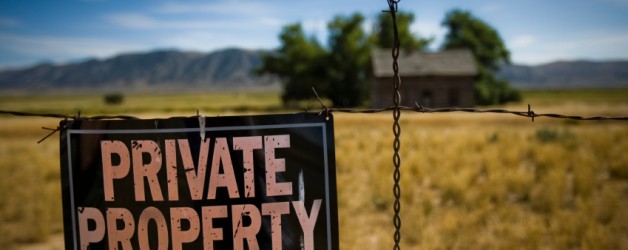Flagstaff Criminal Trespassing Lawyer

Three classifications of Criminal Trespassing under Arizona state law
There are three classifications of Criminal Trespassing under Arizona state law: first, second, and third degree. The severity of the charges and penalties changes with both the type of property involved and the behavior you engage in, while on that property.
Criminal Trespass in the Third Degree (A.R.S. § 13-1502) – Class 3 Misdemeanor
Criminal Trespass in the Third Degree is the least severe of all the trespass charges. There are two ways you can be charged with trespass in the third degree. The first kind of Third Degree Criminal Trespass occurs when you enter into or onto real property unlawfully after receiving reasonable notice prohibiting entry (such as a “No Trespassing” sign). The second kind of third-degree trespass occurs if you unlawfully remain on the property after you have been asked to leave by someone with lawful authority, such as the owner of the property or a law enforcement officer.
If you are caught trespassing onto (1) non-fenced commercial property or (2) property belonging to a railroad company (including railroad tracks), you are likely to be charged with Criminal Trespass in the Third Degree. The offense is a class 3 misdemeanor, punishable by up to 30 days in jail, $500 in fines, and one year of probation.
Criminal Trespass in the Second Degree (A.R.S. § 13-1503) – Class 2 Misdemeanor
Criminal Trespass in the Second Degree is slightly more serious than Criminal Trespass in the Third Degree. If you enter or remain unlawfully in or on (1) fenced-in commercial property or (2) a nonresidential building or structure, you are likely to be charged with Second Degree Criminal Trespass. The offense is a class 2 misdemeanor, punishable by up to four months in jail, $750 in fines, and two years of probation.
Criminal Trespass in the First Degree (A.R.S. §13-1504) – Class 1 Misdemeanor
Criminal Trespass in the First Degree is broken down into misdemeanor and felony offenses. If you enter or remain unlawfully on a fenced residential yard or if you look into someone’s home, thereby disregarding their right to privacy, you are likely to be charged with First Degree Misdemeanor Criminal Trespass. Entering onto real property subject to mineral claims or leases likewise constitutes First Degree Misdemeanor Criminal Trespass if your intent is to take or explore for minerals. The offense is a class 1 misdemeanor, punishable by up to six months in jail, $2,500 in fines, and three years of probation.
Criminal Trespass in the First Degree (A.R.S. §13-1504) – Class 6 Felony
First Degree Felony Criminal Trespass occurs when you enter or remain unlawfully in (1) someone’s home or (2) a “critical public service facility,” such as a fire department, law enforcement agency, or hospital. It is also a felony to burn, deface, mutilate, or otherwise desecrate religious paraphernalia on someone else’s property. The offense is a class 6 felony, punishable by up to two years in prison, $150,000 in fines (plus 84% surcharge), and three years of probation.
Defending Against Criminal Trespass in Flagstaff, AZ
There are a variety of defenses you can raise against Criminal Trespass charges. The most common defense is lack of knowledge. This can occur when you were mistaken about whether you had consent to enter the property, when you weren’t given reasonable notice that entering onto the property was prohibited, or when the person who requested that you leave the property did not have lawful authority to do so.
For example, if you mistakenly believed that the owner of the property had given you permission to enter, you may have a valid defense against Criminal Trespass. Along those lines, where the property isn’t fenced in (unless it’s a residence), “No Trespassing” signs must have been conspicuously posted in order for you to be charged with the knowledge that your actions were wrongful. In addition, if you are the tenant of a residential property, your co-tenant might not have had lawful authority to tell you to leave.
Duress and necessity could be other defenses against Criminal Trespass charges. Duress and necessity occur when you are compelled to enter or remain on the property of another because of a threat against your physical safety or the physical safety of someone else. For instance, if you entered someone’s property because you were being chased by a vicious dog, you probably have a strong defense of duress.
Finally, Criminal Trespass defendants have a variety of Constitutional rights which, if violated, might lead to the exclusion of certain evidence (such as a confession), thereby making it more difficult for the government to prove its case against you. For all of these reasons, it is important to have a competent, experienced attorney who is familiar with Criminal Trespass law and how Criminal Trespass cases progress through the justice system.
Contact us today for the best possible result with minimal stress
Glazer, Hammond & Smets, PLLC can effectively evaluate the circumstances surrounding your case to create a solid defense which will help you achieve the least severe sentence possible.
Take the time to meet with us and discuss your case. We offer free case consultations to inform you of your options and put your mind at ease.






